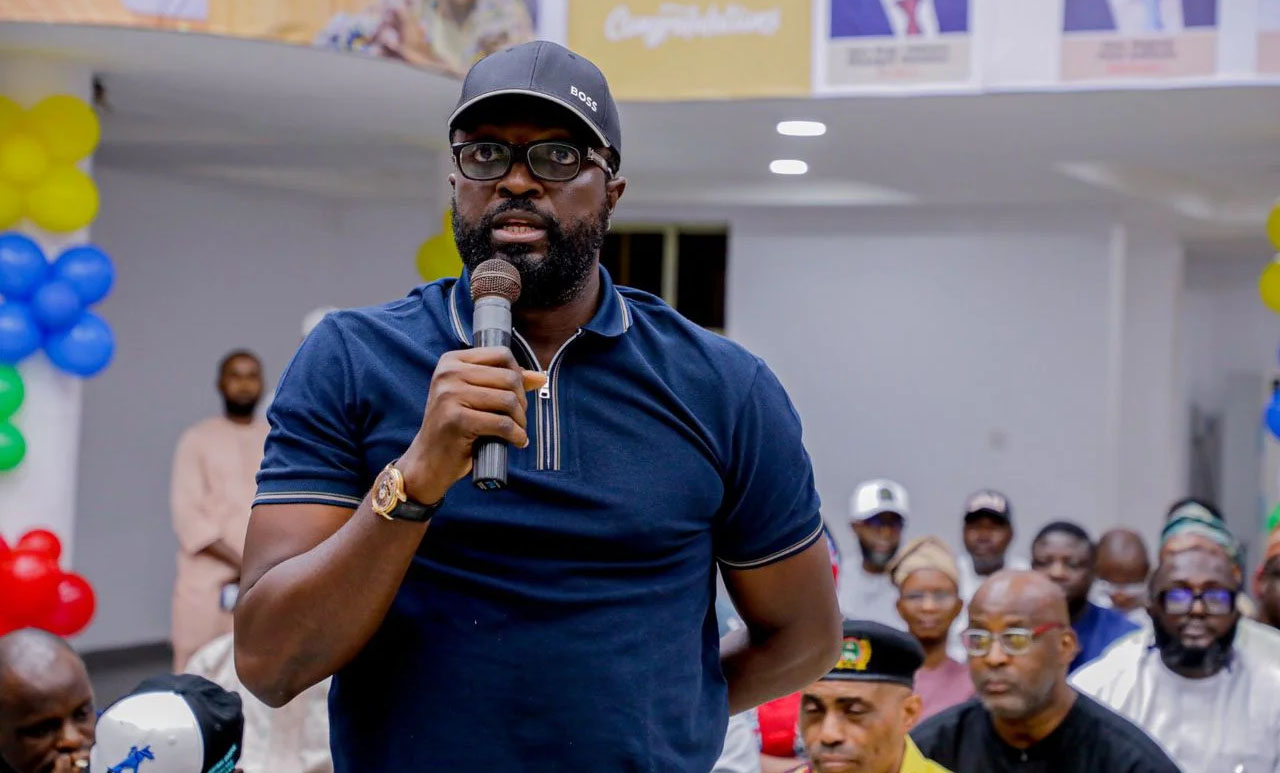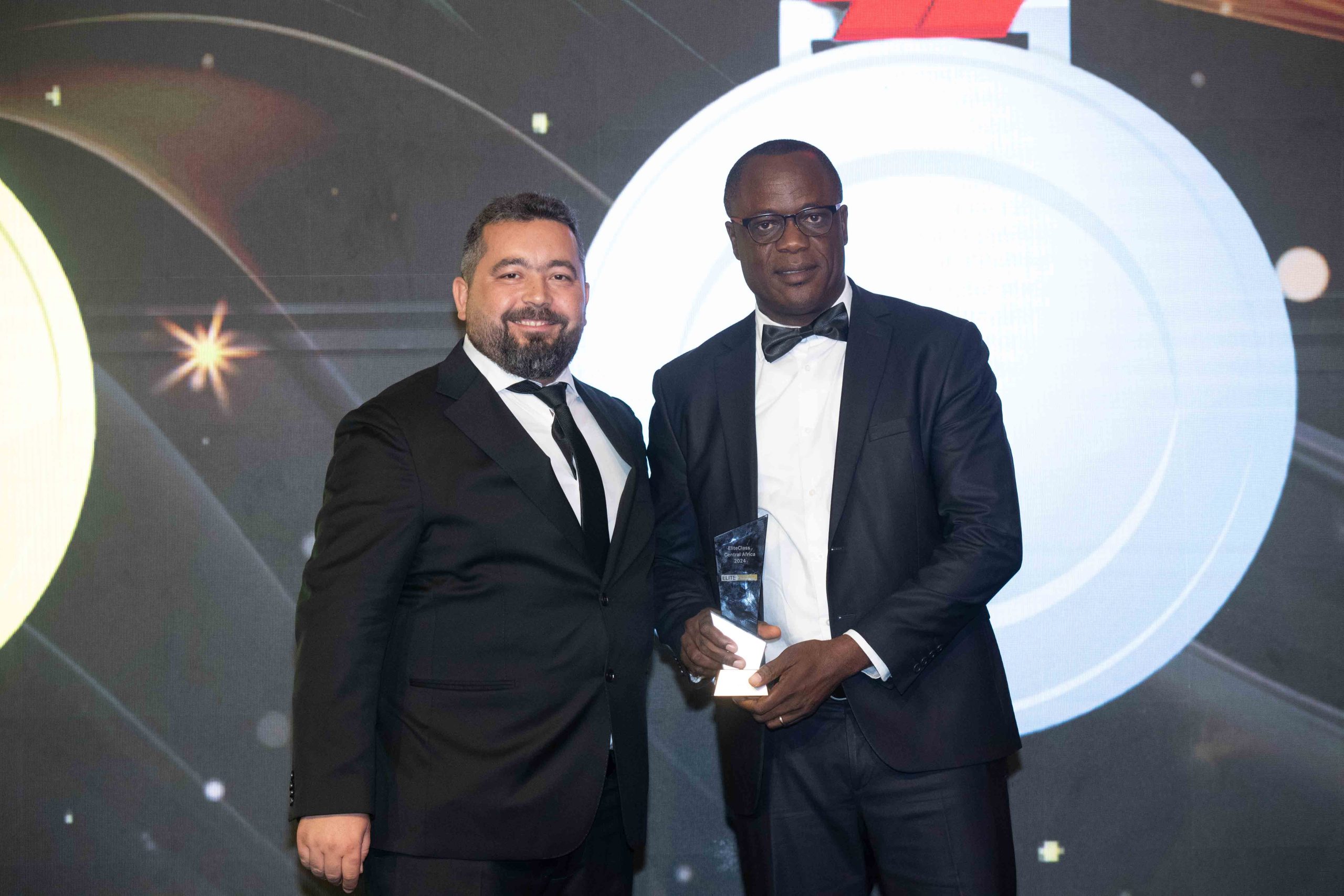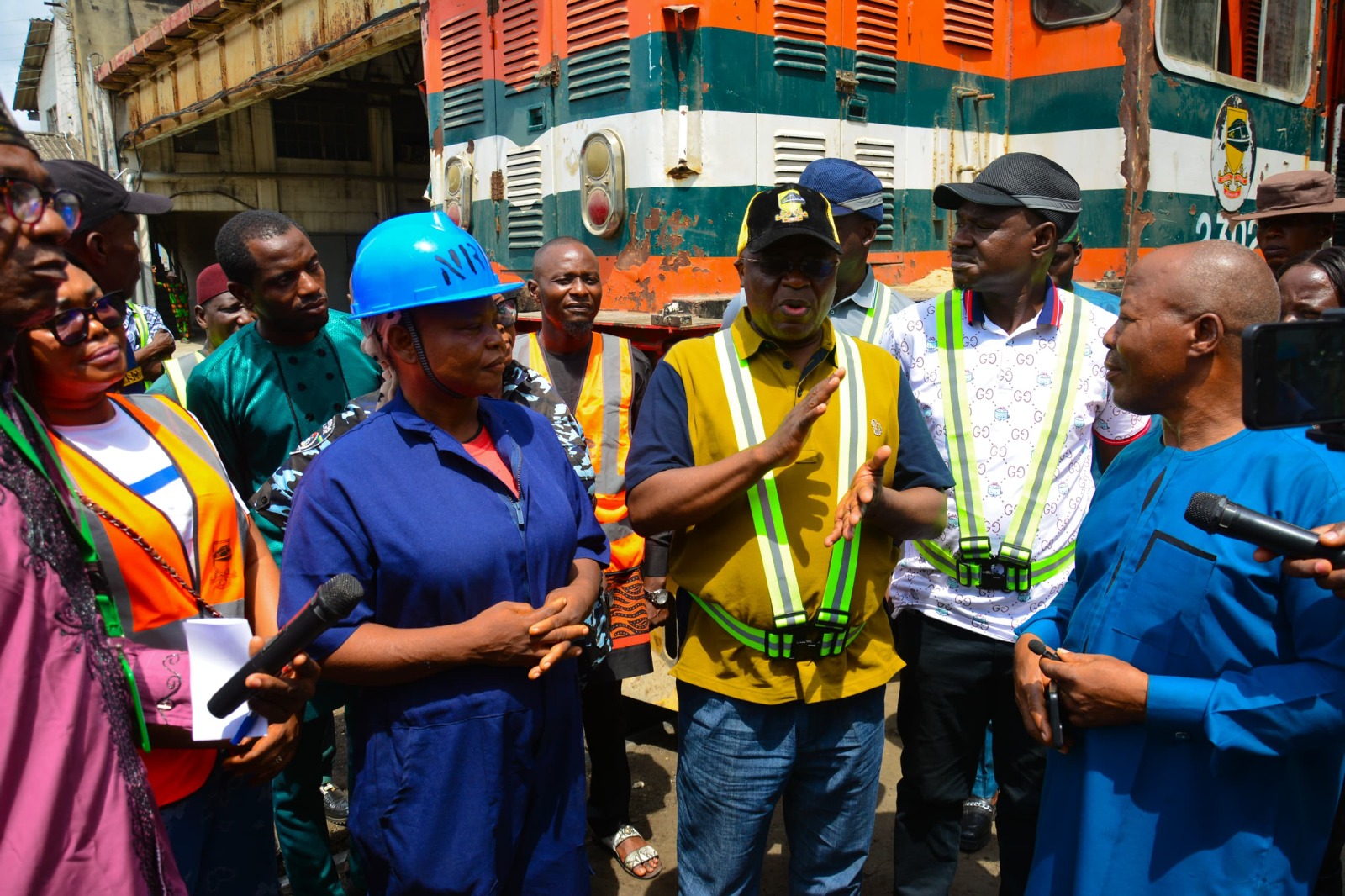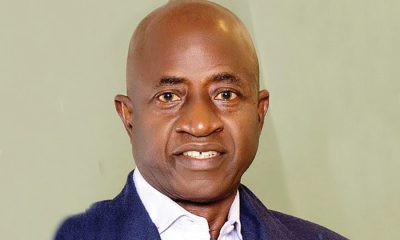Business
Fuel Scarcity: Lingering crisis not deliberate attempt to influence, scuttle elections – NNPC

In a veiled response to the presidential candidate of the All Progressives Congress (APC), Bola Tinubu, the Nigerian National Petroleum Company Limited (NNPC) yesterday said it stands to benefit nothing by wanting to create artificial fuel scarcity to influence the oncoming general election.
But as Nigerians continue to groan over the lingering petrol scarcity and queues at filling stations, the Major Oil Marketers Association of Nigeria (MOMAN) has said NNPC lacks the capacity to supply and distribute the volume of petrol that would serve all Nigerians.Tinubu had in an outburst during his campaign trail, insinuated that the current problems besetting the country, including petrol scarcity and naira shortages were done to hobble his chances of winning the presidential poll.
But the Group Executive Officer of the NNPC, who spoke on the state-owned Nigerian Television Authority (NTA), argued that the nationwide petrol scarcity was not new and wasn’t targeted at anyone.
According to him, the shortage of the product began in 2022 and had continued intermittently despite efforts to curb it.
He reiterated there was no supply problem in the system, but said the market dynamics in terms of logistics and handling charges have changed, thereby affecting prices.
He explained that to deliver Nigeria’s daily 60 million litres consumption, there has to be at least 1,800 tankers on the road daily which may take up to seven days to get to their destinations. Kyari stated that there’s no scarcity of fuel, stressing that the situation has been further compounded by consumer behaviour and panic buying.
READ ALSO:
- I have sacks of new naira notes, says bandit, displays some in viral video
- News of Lawan as annointed presidential candidate shocked Buhari, say El-Rufai
- FRSC promotes Olagunju, Kibo DCM, retires them, 3,628 others elevated
He highlighted the current attempts to end the fuel queues, stressing that prices would soon crash at the depots to ensure normalcy.
According to him, Nigeria’s current fuel consumption accounts for about 70 per cent of the entire West African sub-region.
The GCEO said while the West African region would have been a huge market, the arbitrage being created by differences in prices was making things difficult for the industry.
“There’s greed across the value chain,” he stated.
Kyari stated that the initial design of the petrol pipelines was such that no truck would move beyond 400km, but that the Jesse fire in Delta made it impossible to pump petrol from Warri to Benin and then Ore.
As for the atlas cove, he said the NNPC was losing 24 per cent of its products due to activities of vandals and had to be shut down, while Port Harcourt to Aba was also losing much before it was shut down.
He added that due to the age of the pipeline and the shallowness of the facilities, it was important to rebuild them under the Build, Operate and Transfer method.“I do not think anybody sits down to orchestrate that there should be scarcity so that it will impact elections and so on. I don’t think it happens that way if it is so. But it is not true because the reality is that these glitches actually started early in 2022.
“It has nothing to do with this election period. Once you have a challenge of this nature, it is a cyclical thing. Once you have this challenge, they continue to come up, and then once you have arbitrage issues, you have this glitch.“Today, our redundancy in terms of petroleum products supply is just three days in this country. Once you have a glitch that extends longer than three days, you need another three weeks to stabilise it. So irrespective of who does what, whatever causes the three-day glitch, it is a nightmare waiting to happen.
“Once we see this glitch, that is why we do everything possible to avoid the glitches from happening. I do not think anyone will sit down and say let us create this so that there will be an impact on the elections and so on.“There is no benefit in it. No one would do this and I can tell you this very clearly that there is no one issue that bothers the president like this. There is no briefing that I do to the president that he does not mention this,” Kyari stated.
He explained said it was impossible to link petrol shortage to the elections, noting that NNPC was doing everything in its power to control the situation.
“Yes, there are a lot of glitches. There are a lot of logistics and nightmares. Greed has come into play. There are cross-border issues that we have to deal with. There are international market situations that you have to deal with,” he said.
Kyari maintained that Nigeria has enough stock in-country, but added that distribution was a major challenge.
“We do not have a supply problem because as we speak now, we have over 28 days of supply even if we evacuate up to 60 million litres of PMS every day. We have a distribution problem that comes up as a result of the shift in the cost of logistics in our business taking fuel from the mother vessels to the terminals into trucks to the fuel stations.
“Several things have changed and we do not have an automatic adjustment system that will resolve this as a result of the fuel subsidy regime we are currently operating in the country. However, fuel subsidy payments are understandable to protect consumers from the vagaries of market forces,” he noted.
In his remarks, the Chief Executive of the Nigerian Midstream and Downstream Regulatory Authority (NMDPRA), Farouk Ahmed, stated that there’s about 28 days offshore capacity while there’s 12 days onshore, stressing that there has been an increase in charges to move vessels from offshore to onshore from about $19,000 to $60,000 per day in some locations.
READ ALSO:
- Customs burst cross-border criminal syndicate, seize fake $6m, forged passports
- Ghanaian pastor divorced by wife for impregnating sidechick vows to ban condoms if elected president
- Gun threats: Tajudeen Olanrewaju, Ogboni Leader declared wanted
He stated that there have been glitches on the road, including accidents which created huge gaps and by extension, arbitrage. He noted that tens of filling stations that flouted the rules had been shut down.
MOMAN: NNPC Alone Cannot Supply All Petrol Needed by Nigerians
Meanwhile, the Executive Secretary and Chief Executive Officer of MOMAN, Mr. Clement Isong, during a phone chat with THISDAY, explained that the NNPC was challenged by insufficient storage and distribution facilities that would enable it supply products to marketers.
Isong, who pointed out that entrepreneurs needed incentives to participate in the downstream oil and gas supply chain in the country and help address the disruption in supply and distribution, however, assured that the fuel scarcity and queues might ease in few weeks’ time if all the players comply with the rules agreed at the stakeholder meeting held on Tuesday at the instance of the NNPC.
At the meeting held in Abuja, the Chief of Defence Staff, Gen. Lucky Irabor, had told the participants that the government was not handicapped in halting the fuel crisis, threatening to use military sanctions on marketers causing the artificial scarcity and pains on Nigerians.
Also, Kyari had equally stated at the meeting that the challenge was monumental and was taking unanticipated dimensions, maintaining that the issue was not a supply problem.
But speaking with THISDAY, the MOMAN Executive Secretary noted that NNPC had brought all the products the country needs but that most them were offshore, adding that solving the fuel crisis need the cooperation from many operators in the system, with right incentives and right business environment.
Isong said, “The truth of the matter is that NNPC by itself cannot supply the entire Nigerian market. They have brought all the products the country needs, most of it is offshore. It is challenged. Distribution in the country is such that NNPC cannot bring all of it onshore by itself –use its own facilities and distribute to the Nigeria public. They need cooperation from very many operators in the system.
“So, it needs the entrepreneurs –people who will go and buy the product, pay for it, hire daughter vessels to go and pick it from the mother vessels and bring them onshore. It needs operators in the market who own depot facilities. Many of the NNPC depot facilities which were connected to the pipelines are either non-functional or insufficient.
“The Atlascove which is connected only by a pipeline system is not functional because people along the pipeline have made holes along the pipelines. The Warri Refinery, Port Harcourt Refinery are not functional but they have depots there, but those facilities are not sufficient. So, it needs to then hire facilities from depot owners along the coast, or depot owners will go and buy from the NNPC vessels and put in their facilities to distribute.”
READ ALSO:
- S’Court dismisses PDP suit against Oyetola’s participation in Osun election
- BREAKING: CBN Issues fresh directive to banks on new naira notes
- Support hijab to suppress urge for nudity, crime – Muslim groups
He further said the situation also required transporters and entrepreneurs to buy trucks, maintain those trucks and take the products to the filling stations for distribution to Nigerians, maintaining that the situation also requires the filling stations to cooperate and sell the product at the right prices to Nigerians.
Unlike the threats of military sanctions on marketers by Irabor and the Department of State Security (DSS), the MOMAN CEO said, “these are not things you can force people to do. People will only do them if the incentive is right; if the business environment is right, if the return on investment is right. It’s not something you do buy force.”
Currently, according to him, the legal structure in operation in the downstream sector was the Petroleum Industry Act (PIA) but that the downstream market was not operating under that legal structure as petrol prices were still being set by government in breach of the law.
Arguing that if marketers bring the product and were not recovering their costs and that their money served them better elsewhere, there would not be entrepreneurs that would be incentivized to participate in the business.
Isong, who called for a level of volunteerism and incentivisation in the downstream business, added that all stakeholders must come to the table and agree to play their part in the business.
That, he explained, was what the stakeholders’ meeting was about, “it was arriving at what was reasonable for all the players in the supply chain to participate and play their role in the supply chain and to agree the level of incentives that would make them play that role fairly. So, at the end of the meeting, everybody pretty much agreed to abide by the rules as we agreed.”
READ ALSO:
- CBN governor, bank chiefs on a collision course over amount of new notes
- New naira scarcity: Sokoto, Zamfara, Katsina border residents trade in CFA
- 19-year-old student arrested for faking cancer to get huge sums in donations
According to him, “if those rules are sufficiently incentivising, what we expect is that over the next few days, people will go and start hiring vessels again, which they had stopped hiring, to go and start collecting products from the outside storage to put it through their depots. The trucks that had stop coming or that had gone to other places, will start coming back to do business.
“And then, it will make sense to sell petrol through filling stations again, rather than selling in jerry cans. Everybody will come to the business and the price will come down because people are properly incentivised to do the marketing in the correct way.”
He explained that the rules established at the Tuesday stakeholders’ meeting were rules about handling of the product and about maximum cost that could be borne along the supply chain.
Isong further said, “The vessel cost is much, so we agreed that the vessels must not cost much. The transport cost must not cost much. It’s just an agreement as to the handshake in the supply chain to make sure that everybody plays his role efficiently and properly incentivise or motivate us.”
He, however, assured that if all players cooperate, the petrol scarcity and queues would ease in the next few weeks.
On whether the body language of the federal government was telling them that the government was seriously preparing to achieve the June target for subsidy removal, the MOMAN CEO, said the industry stakeholders and government were basically trying to keep the system going until subsidy removal.
“We are trying to put together a regime that will survive until subsidy is removed. So, to me, the meeting was all positive, positive. It was agreed that if anybody misbehaves, then he is on his own. What happens to him is his fault. Everybody should play by the rules that were freely and openly negotiated on Tuesday,” he added.
Railway
Lagos Govt to redesign Oshodi motor park for rail integration

Lagos Govt to redesign Oshodi motor park for rail integration
The Lagos State Government has announced plans to redesign the Oshodi Transport Interchange (OTI) to integrate the facility with the Red Line and Blue Line rail systems, advancing its Rail Mass Transit project.
This initiative aims to deliver seamless connectivity between the two key rail networks and enhance commuters’ experience in Lagos.
The disclosure was conveyed via a statement shared on the official X (formerly Twitter) account of the Lagos State Ministry of Transportation on Saturday, highlighting the need to optimize the design and operations of the OTI to boost efficiency and align with global standards.
READ ALSO:
- Nurse punished in UK for addressing convicted transgender paedophile as ‘Mr’
- Ex-LG chair challenges El-Rufai’s claims on council funds
- Some ladies in movie industry ready to sleep their way to fame — Jide Kosoko
To kickstart the process, the Honourable Commissioner for Transportation, Seun Osiyemi, held a meeting with stakeholders to assess the current state of the interchange and outline strategies for its improvement.
“The Ministry of Transportation sought to address the ongoing developments and challenges affecting the Oshodi Transport Interchange (OTI) in preparedness for the integration of the Rail Mass transit system; Red Line rail project connecting the Blue Line.
“The Ministry recognized that a review of the OTI’s design and operations is essential for its optimization which led to the Honourable Commissioner for Transportation, Oluwaseun Osiyemi meeting with relevant Stakeholders to discuss the current state of the OTI and identify viable solutions that would enhance its operational efficiency in alignment with global standards and Standard Operating Procedures,” the statement read in part.
Lagos Govt to redesign Oshodi motor park for rail integration
Auto
Nigeria’s firm, Weststar Associates, shines in Dubai, wins Daimler Truck EliteClass award

Nigeria’s firm, Weststar Associates, shines in Dubai, wins Daimler Truck EliteClass award
Weststar Associates Limited, Authorised General Distributor of Daimler Truck in Nigeria, has brought honour home all the way from United Arab Emirates specifically at the EliteClass 2024 Season Awards.
Daimler Truck Middle East Africa the Weststar team with the Silver Award in the Elite CSP (Customer Service and Parts) Performance category.
This is contained in a statement issued in Lagos, which added that the EliteClass 2024 Awards ceremony brought together 40 Daimler Truck Business Partners for a night of recognition and celebration.
Held at the One & Only Royal Mirage in Dubai, the prestigious black-tie event honoured top-performing general distributors that have demonstrated exceptional performance, dedication, and commitment to excellence in 2024.
The EliteClass 2024 Awards C
ceremony was the culmination of a year-long EliteClass programme for the Middle East and Africa measuring 24 categories across the entire business spectrum for Mercedes-Benz Trucks, Daimler Buses, and Fuso Trucks & Bus.
The awards highlighted the dedication and resilience of partners who have achieved outstanding performance and a remarkable commitment to excellence and contributed significantly to Daimler Truck’s success in the MEA regions.
President & CEO of Daimler Truck Middle East Africa, Mr. Michael Dietz, emphasized the importance of collaboration and performance-driven success during his opening address. “EliteClass 2024 is more than just an awards ceremony—it is a testament to the hard work, commitment, and shared vision of our partners.
“Their achievements continue to drive our brand forward, setting new benchmarks in customer experience and operational excellence across the region,” he said.
Weststar’s General Manager, Sales, Mr. Christopher Irumudomon, was present at the EliteClass 2024 Season Awards ceremony to accept the Silver Award in the Elite CSP (Customer Service and Parts) Performance category.
While presenting this award, the Daimler Trucks MEA leadership made the following statement: “Congratulations on your achievement in the EliteClass Central Africa 2024 Season. We are pleased to recognize your individual category achievement.”
The EliteClass 2024 Awards reaffirms Daimler Truck’s commitment to excellence, continuous growth, and the recognition of partners who drive success in an evolving industry landscape.
According to the statement, Weststar Associates Limited continues to fly the flag of the “brand with the star” high in Nigeria.
It said the company had remained the go-to home for all Mercedes-Benz needs in this region.
“With a dealership network that expands to the major regions of the country, along with highly trained and experienced sales and after-sales staff. Nigerians can rest assured that they will always have ‘the best or nothing’ at their disposal,” it stated.
Railway
NRC to revive Lagos 2pm MTTS train as Opeifa tours districts

NRC to revive Lagos 2pm MTTS train as Opeifa tours districts
The Nigerian Railwaiy Corporation (NRC) will soon revive its Lagos 2pm mass transit train service (MTTS) in line with the demands of passengers.
Managing Director of the NRC, Dr Kayode Opeifa, disclosed in Lagos, assuring Nigerians of the readiness of the corporation to serve them better.
He spoke at the Iddo Train Station, while addressing train passengers commuting daily from Ijoko and other border communities in Ogun State to Iddo and Idumota axis of the Lagos Island.
A statement by the Deputy Director of Public Relations at the NRC, Mahmood Yakubu, quoted the MD as saying, “NRC management being aware of the centrality of the MTT Kajola to Iddo rail line to the continued prosperity of the Iddo, Idumota and some other big markets in Lagos will not only continue to sustain the line, but work to add addition service after careful commercial market viability and sustainability studies.”
Opeifa was at Iddo Station to assess the available space in preparation for upcoming developmental and revitalization initiatives.
According to him, the transformation of the Iddo Terminal is central to the corporation’s goal to significantly improve the terminal’s infrastructure, optimize its capacity and elevate the passenger experience
He also said the management would urgently embark on the rehabilitation of the coaches to improve the ambience of the interior of the trains and the Iddo stations for better customer experience and patronage.
Opeifa said he would not hesitate to terminate the contract of any contractor not willing or ready to add value to the corporation’s service.
The managing director, who spent some time going round the Iddo Station, also directed the installation of solar panels around the station to better improve the lightening condition, even as he sent the signal that a comprehensive review of all land leases around the station is underway.
Opeifa was nostalgic about the several interesting monuments and railway relics.
He called on corporate organisations and other philanthropists to support the corporation in the area of provision of conveniences for train passengers as part of their corporate social responsibility.
The Railway District Manager (RDM), Engr Augustine Arisa, and District Superintendent, Mrs Chidinma Mba, also informed the MD that the prosperity of the Idumota market is also related to the operations of the MTT line as any day the train does not run, the market feels it.
The NRC MD had earlier commenced his maiden tour of the NRC districts across the country, with a tour to the Running Shed of the corporation at Ebute Metta, which he learnt was a hub to other districts.
He expressed delight at the industry of ironmen (women engineers and technicians) working in the corporation who are competing with their male counterparts in ensuring that all the nation’s rolling assets are in serviceable conditions.
The tour took him to the store, where Opeifa directed that the management must commence the painting of several legacy buildings of the corporation across the country.
He added that the corporation was determined to improve its image as a frontline mobility service provider and the hub for logistics services in the country.
Opeifa who observed that there are no scraps in the railway, reiterated earlier calls on Nigerians to beware of anyone vandalizing the rail materials across the country, adding that security agencies especially the Nigeria Security and Civil Defence Corps (NSCDC) had been directed to prosecute anyone caught vandalizing any rail assets.
He said the corporation would put back to shape as many narrow gauge locomotives still serviceable and would deploy them across the country to serve passenger traffic anywhere the corporation had existing train lines just as the Federal Government would aggressively continue to invest and expand the national standard gauge corridor.
The tour also took the managing director to the Battery Room, as well as the laboratory, an inspection of all the mechanical fluids which was a crucial facility responsible for analyzing the quality and integrity of mechanical fluids used in NRC rail operations.
He assured the laboratory that the management under his watch would continue to support their growth and development as he himself trained and once worked as an analytical chemist.
The tour also took Opeifa to Agege Station where he had a closed door meeting with officials from the Lagos Metropolitan Area Transport Authority (LAMATA), led by the Director Rail Services Engr Olasunkanmi Okusaga, on how to firm up security challenges between the two stations Babatunde Raji Fashola Station and the Lagos State Train Station at Agege Station.
Opeifa who was led round by the Agege Station Manager, Mrs Ese Asowata, went round to check the station’s conveniences, the VIP Lounge, the control room, the ticketing lounge and administrative sections among others.
The managing director took time to address the concerns of some train passengers, one of them, Olatunde Apata, who complained of what could be done for any passenger who missed his train. Apata, who was heading to the Prof. Wole Soyinka Station, in Abeokuta, Ogun State, had missed his train because he went to pray.
Addressing all challenges Opeifa directed that under no circumstances should the ticket not work to relief passengers with disability access the train.
He equally said efforts were being made to see how the issue of those missing their train would be addressed even as he disclosed that the NRC and LAMATA were working at how to ensure passengers could co-switch and access the metro train to continue their journey from the stations.
-

 metro3 days ago
metro3 days ago‘We’re not hiring,’ NNPC denies viral recruitment adverts
-

 metro2 days ago
metro2 days agoNatasha: Court blocks recall attempt, stops INEC
-

 Sports2 days ago
Sports2 days agoOdegbami speaks on Osimhen breaking his 44-year goals record
-

 Entertainment2 days ago
Entertainment2 days agoI didn’t snatch Asake’s mother from her husband -Musibau Alani
-

 Sports3 days ago
Sports3 days ago2026 WCQ: Super Eagles move up to third place with 2-0 win in Rwanda
-

 Sports3 days ago
Sports3 days agoOsimhen breaks Odegbami’s Eagles goal record
-

 metro2 days ago
metro2 days agoOluwo accuses Ooni of plotting to dethrone him
-

 metro2 days ago
metro2 days agoBoko Haram attacks military base in Adamawa







